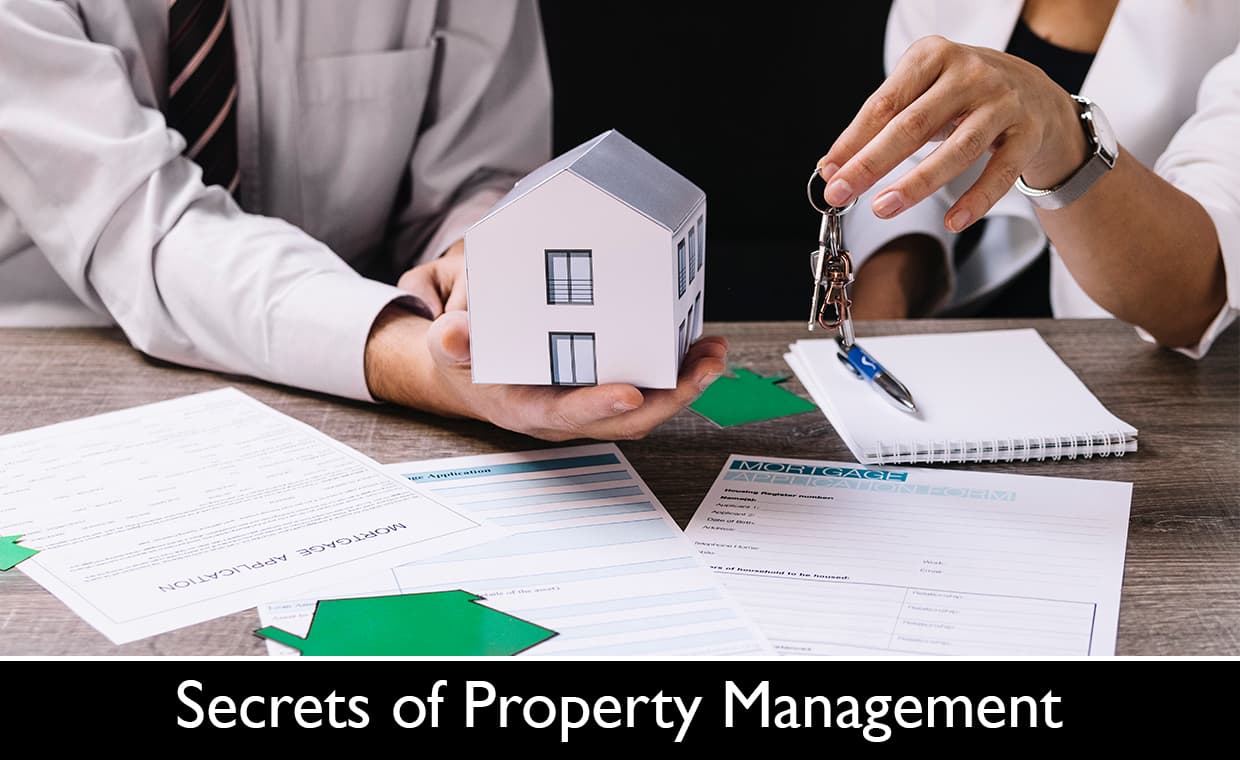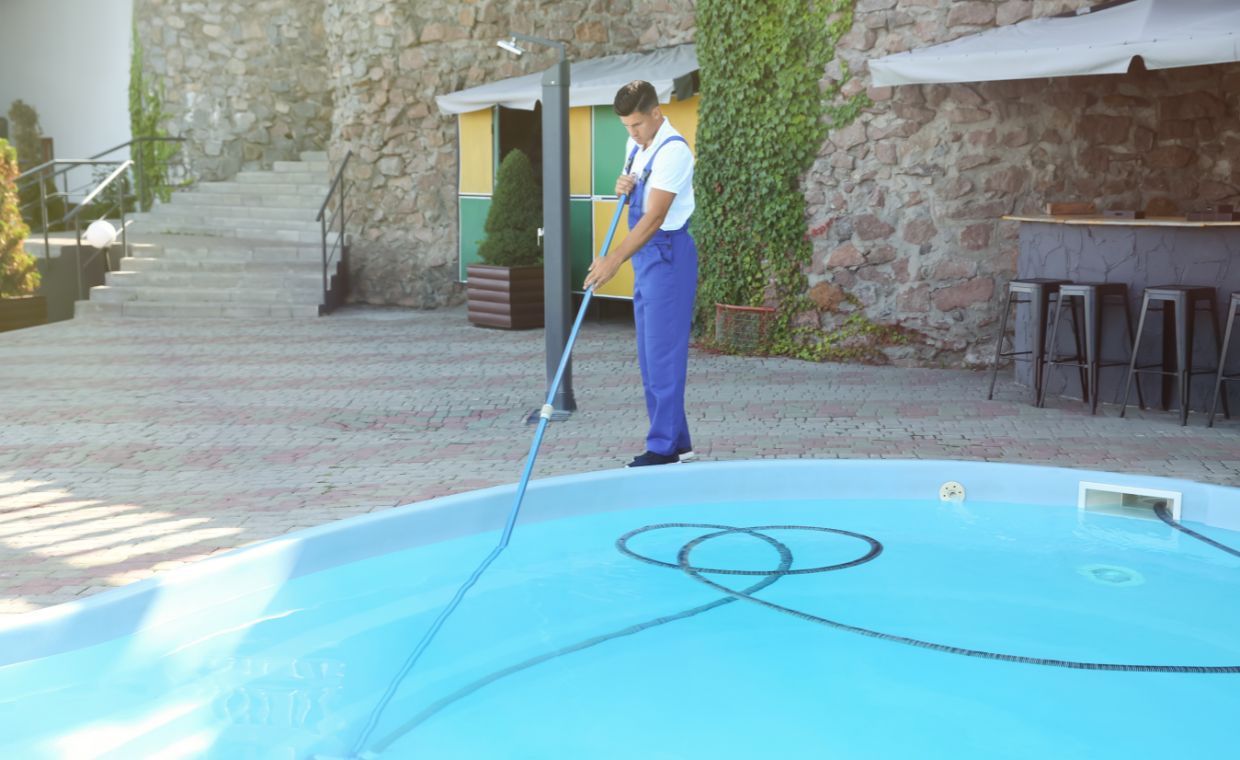
Property management agents are indispensable assets for real estate investors that want to put their properties on autopilot. This is particularly true for those who don’t live near their real estate investments, and for first-time investors who don’t want to run the risk of dragging their rental to the ground due to their lack of market knowledge.
However, there are still investors that would want to maintain their real estate investments on their own. According to the National Association of Realtors (NAR), over 42 percent of investors oversee their properties themselves.
Secrets of Property Management
If you’ve decided not to partner with a property management service, here are some tried and tested tips to secure real estate success.
01. Start with Strict Tenant Screening

One of the best things you can do is to ensure that you secure responsible tenants. To do this, you need to screen your potential tenants strictly by conducting a background check, credit score check, criminal record check, and more. Take the time to get to know your potential tenants so that you don’t put your property – and other people – at risk. Bear in mind that as the investor, you may be held liable for your tenant’s misbehaviour.
02. Stay up-to-date on All Rental-Related Laws for Proper Property Management

A common mistake that first-time investors make is not understanding the rules and regulations that are relevant to their real estate investment. Unfortunately, if these laws aren’t followed, you can’t simply say that you’re sorry. You will likely get in legal trouble for things that you probably didn’t know were unlawful. For instance, did you know that you can be held liable for discrimination because of your marketing materials? Or that you can end up in court if you don’t repair your renter’s heater?
It takes only one lawsuit to break your rental business’s reputation. Don’t run the risk – take the time to know the law so that you can continue to operate your rental business without any roadblocks.
03. Provide Tenants with the Convenience to Report Repairs
As a real estate investor, you’ll have to deal with an endless list of repairs over the course of your rental endeavour. Since it’s inevitable, it would be worth your while to develop a system that allows your tenants to conveniently report repairs. It should be able to record when reports were made and whether or not they’ve been resolved.
If you were to partner with a property management company, they’d already have their own tenant portal to receive complaints. However, if you’re on your own, you’d have to invest in software.
This convenience will encourage your tenants to report repairs as they arise. Keep in mind that you can’t always keep an eye on your property, so you’ll need eyes on the ground to ensure that everything is in good working order. If you make it difficult for your tenants to report repairs, they likely won’t do it at all. A tenant portal, on the other hand, allows you and your tenant to work hand-in-hand to keep the property in tiptop shape.
04. Establish a Network of Vetted Vendors
For obvious reasons, you’d want to maintain a profitable investment. Therefore, make sure to save when the time comes to conduct repair work on your rental property. Begin by establishing a network of vendors, such as contractors, gardeners, plumbers, etc., that can do the work at a competitive rate. Over time, you’ll be able to negotiate better and unbeatable rates, saving you more money in the long term.
By establishing a pool of vendors, you’ll be able to secure their services during emergencies. In other words, you’ll have vendors on call in case you need to conduct repairs ASAP.
Make sure to vet every vendor. Contact their clients, refer to their portfolio, and check the work they’ve done over the previous year. Saving won’t be worth it if it involves settling for lower standards.
05. Don’t Postpone Property Inspections

Conducting property inspections can be time-consuming, which is why most property owners tend to postpone it. But ask any seasoned investor, and they’ll likely tell you that this should never be done. Inspections are the key to property upkeep.
Strive to inspect your investment property at least every three months. If you’re a long-distance landlord, you can trim this down to once a year, however, it should never go lower than that (i.e. it should never be “never”). A property inspection is an opportunity to pinpoint problems and to deal with them while they’re still manageable. If you were to postpone (or worse, forgo) the inspection, you’d probably end up with a damaged property that’s beyond repair.
Consider preparing a home inspection checklist to make sure that you cover everything. It can be easy to become overwhelmed during the inspection, but a checklist can help you keep things in order.
06. Get to Know Your Tenants

A lot of landlords consider their relationship with their tenants as entirely transactional. However, if you want to avoid tenant turnover, you should take the time to get to know them. That’s not to say that you should be best friends with your tenants (you should avoid this as this tends to result in favouritism), but you should at least be genuinely interested in who they are, what they do, and so on.
Go the extra mile and chat with your tenant the next time you see them. Don’t talk about the rental property, but instead, stick to topics that you’d talk about with your peers. Your goal is to show your tenants that you truly care and that your role isn’t solely to collect their rent.
Conclusion
Property management can be complicated – but only if you’re ill-prepared. If you take the time to understand what it takes to run a rental business, you’ll be able to see success in no time. And remember, if self-managing your investment property seems too time-consuming and tedious, you can always count on a property management service. With a property manager by your side, you’ll be able to make the most out of your investment without having to lift a single finger.
You may read similar articles related to this topic:
What You should Know about Letting as a First-time Landlord?
Choose the Best Real Estate Agent/Realtor with the Help of These Top 12 Traits
Image Courtesy: Image 2






























